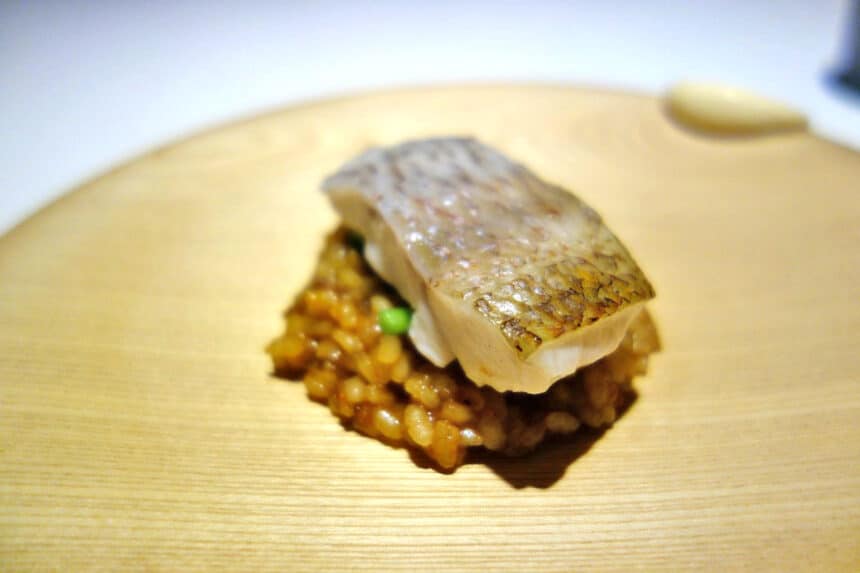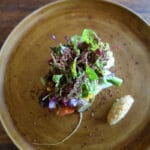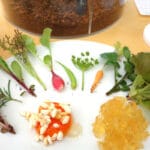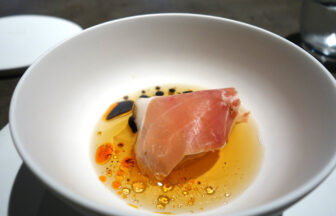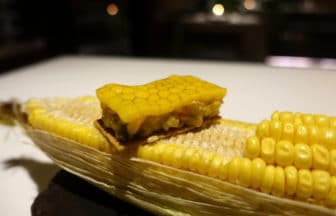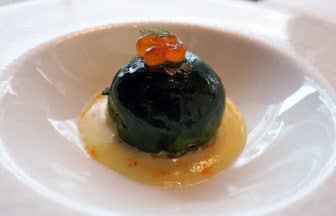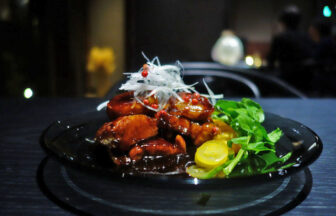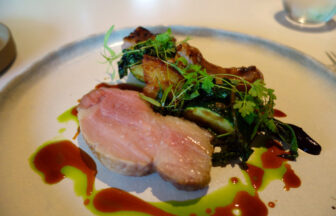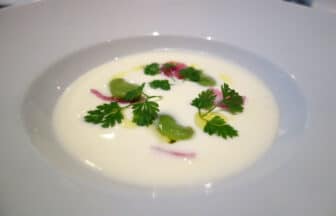A restaurant born from childhood friends who were baptized in modern Spanish in Barcelona and reunited in their hometown of Kanazawa.
The stance of “Think Global, Act Local” is one of the best shops in Japan.
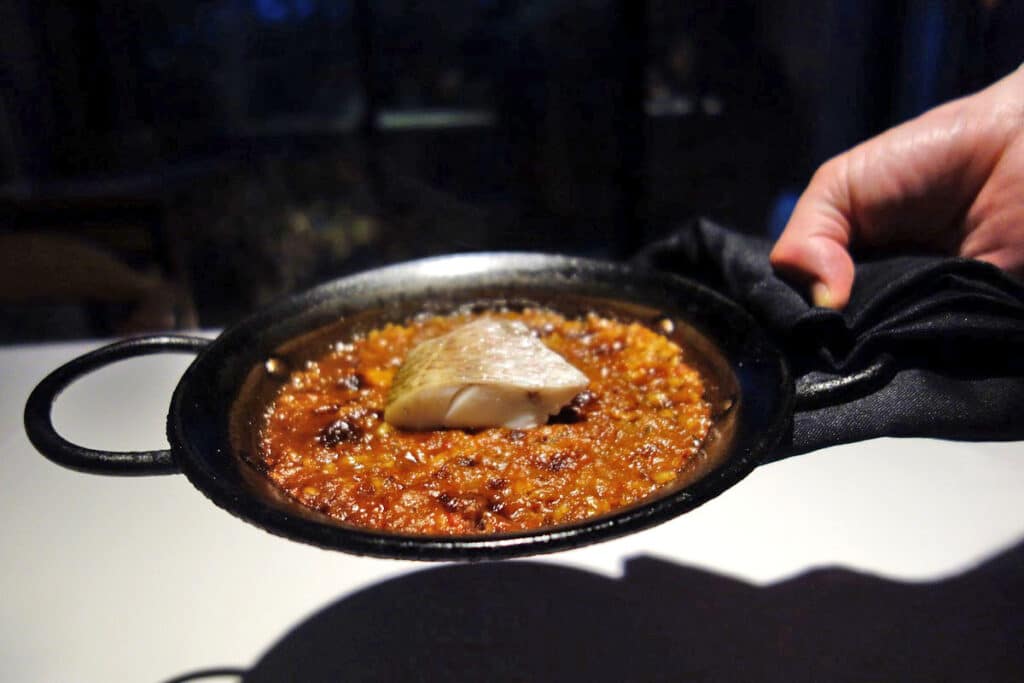
Ave. Budget: Lunch 15,000-20,000 JPY, Dinner 20,000-30,000 JPY / “Michelin Guide Ishikawa 2021” 2-star & green-star
Book via Pocket-Concierge Book via Table Check
Restaurant features
Although it is still a new store, having opened in July 2017, it is one of the first to be mentioned as an innovative store in Hokuriku.
In fact, it is certain that it is one of the leading restaurants in Japan as a contemporary Spanish restaurant with a quality that makes you feel dignified.
The location is a little ahead of Kanazawa’s kitchen, Omicho Market, and the appearance of a renovated old folk house with a sense of history is impressive.
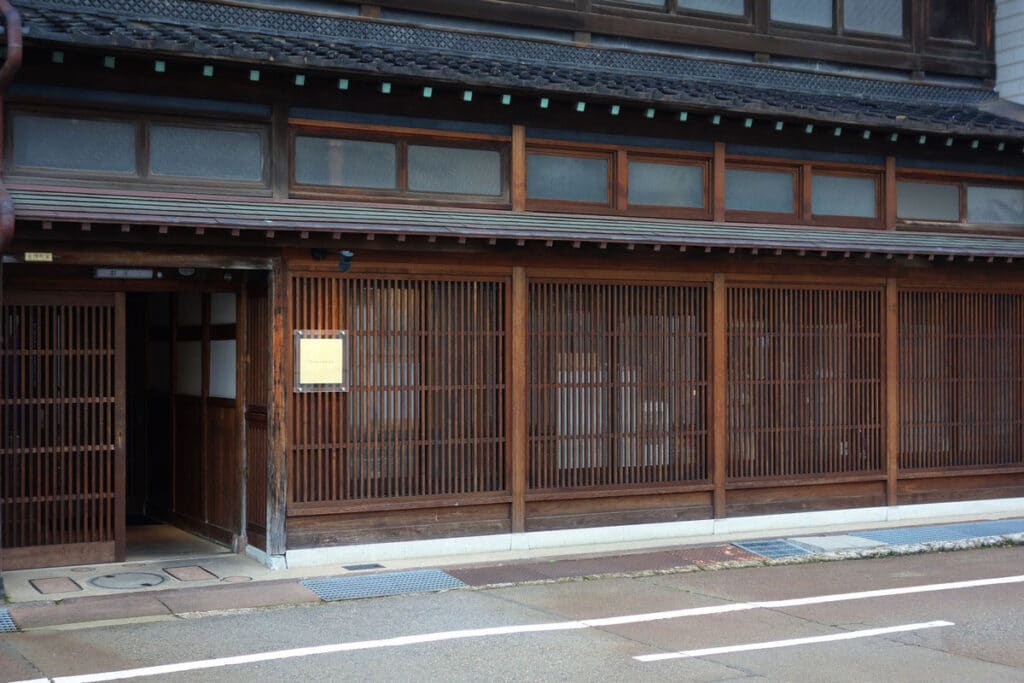
Since it started all at once, I followed the guidance to come 10 minutes before the scheduled time, and was passed through the storehouse in the back.
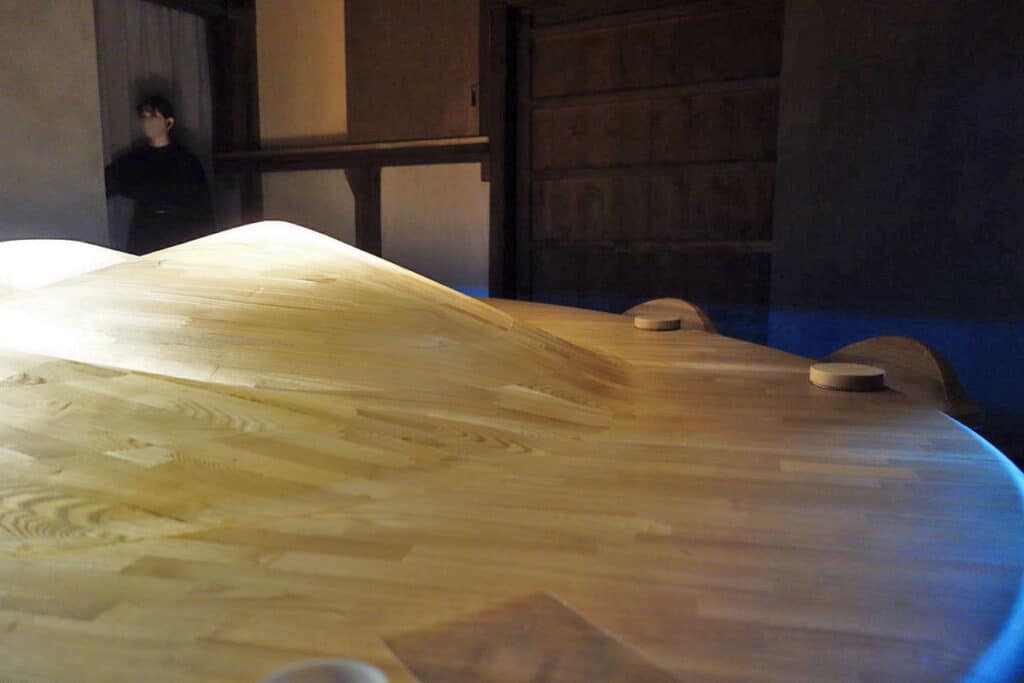
It seems that it is used as a waiting room, but it is somehow an amazing table.
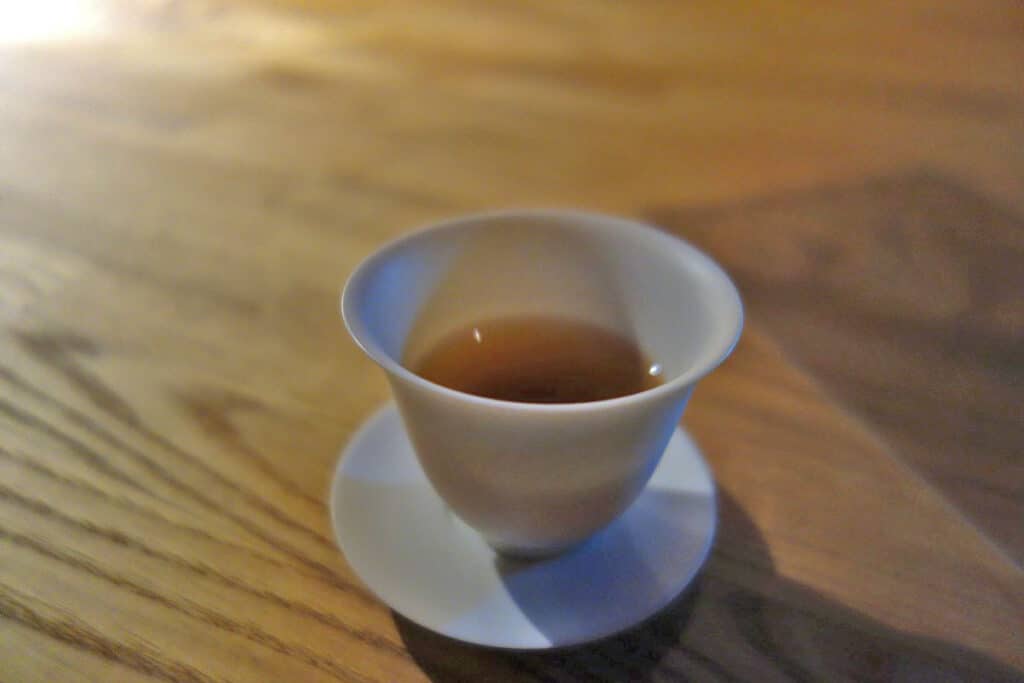
Waiting for the start with an original tea blended with “Kaga stick tea”, which was also known as a gift item, and black tea.
Available in 2 courses
There are two menus: 11 items “Course No. 1” 13,200 yen and 13 items “Course No. 2” 17,600 yen.
“Course No.1” is only available for lunch.
At the end of May when I visited, Ishikawa Prefecture had a short request / request to refrain from serving alcoholic beverages until 20:00, so dinner started at 17:30.
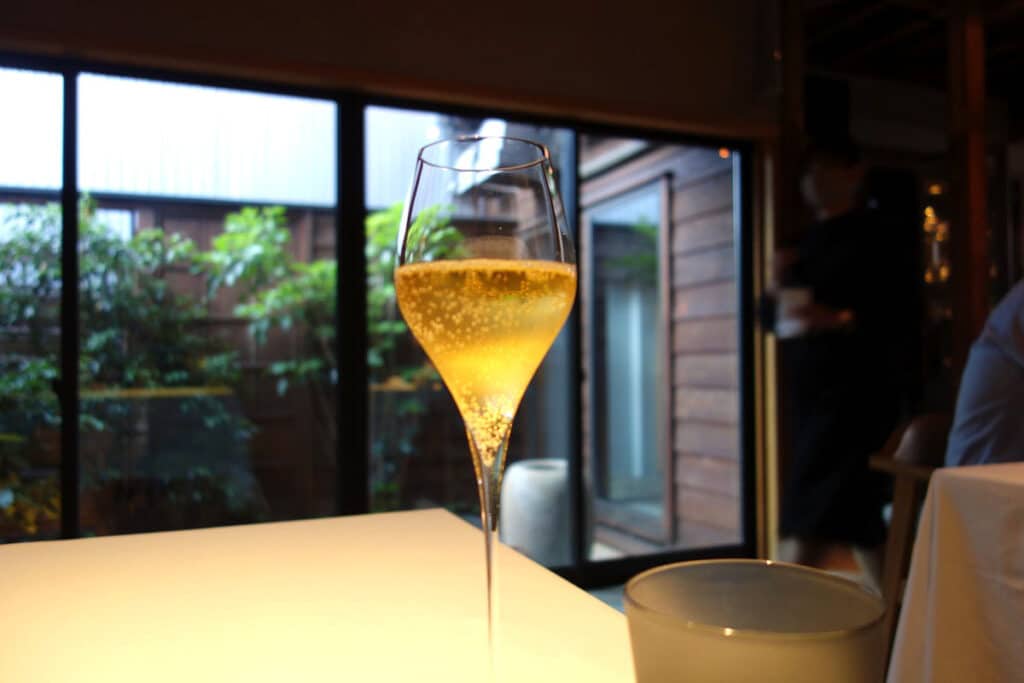
This day is also non-alcoholic.
I don’t particularly like alcohol, but I’m starting to want to drink a little.
However, it seems that this sparkling wine is made in Toyama, and it is quite delicious.
‘Impact’ Sweet shrimp
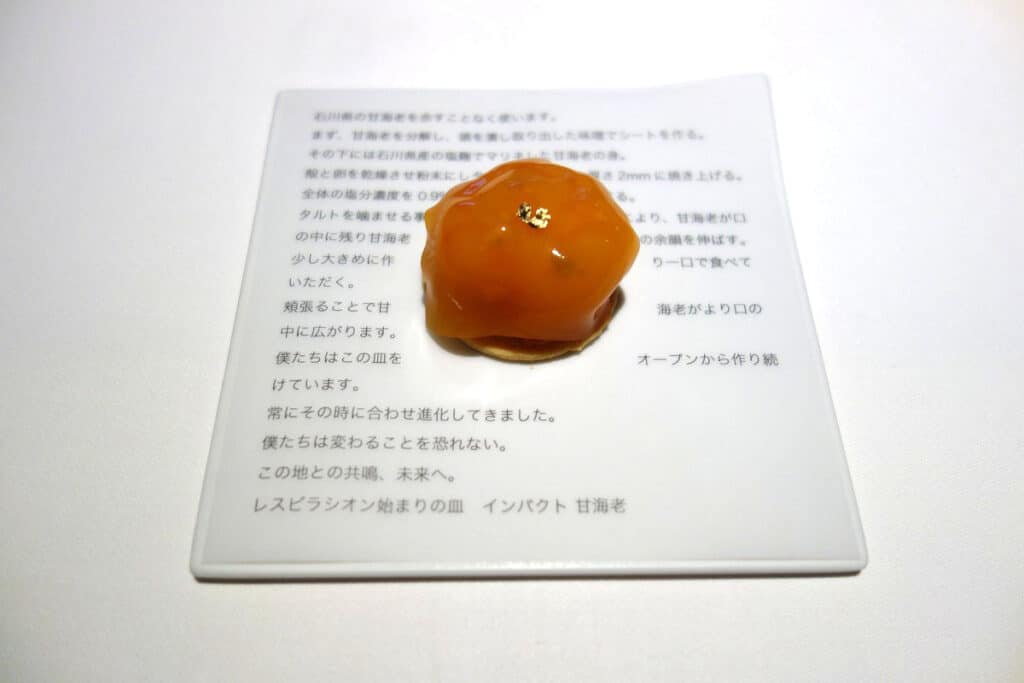
Amuse is sweet shrimp from Ishikawa.
It’s a gem that uses every part of sweet shrimp, but it’s interesting that the details are written on the sheet under the dish.
‘Ostra’ rock oyster
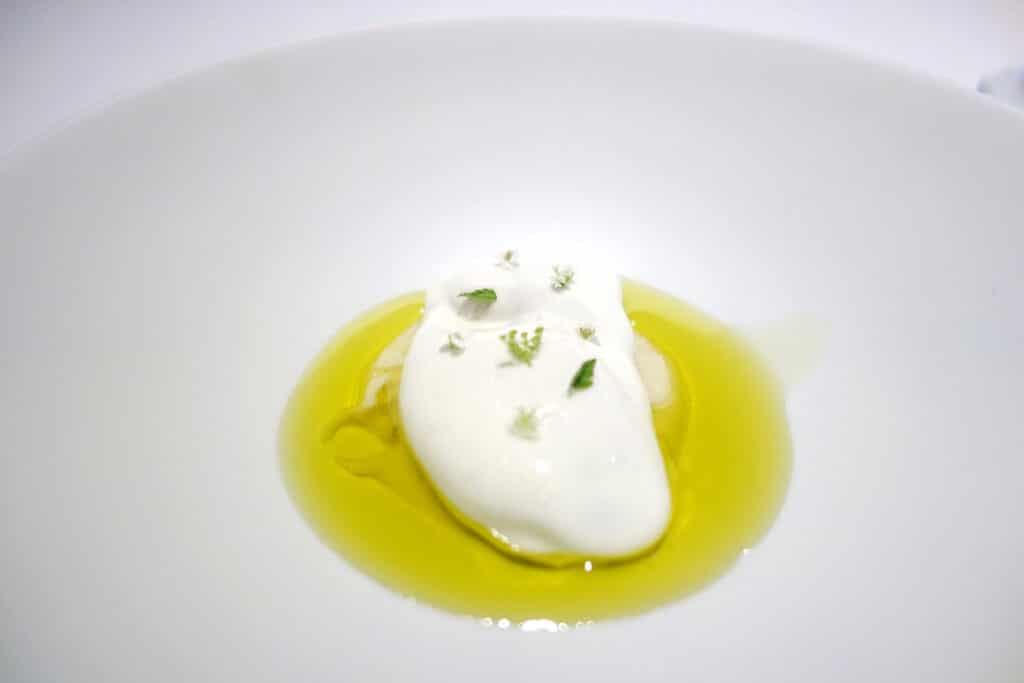
Noto rock oysters wrapped in whey and new onion cream.
The scent of Japanese pepper is transferred to olive oil, and dill buds are scattered.
Gazpacho flavored with herbs
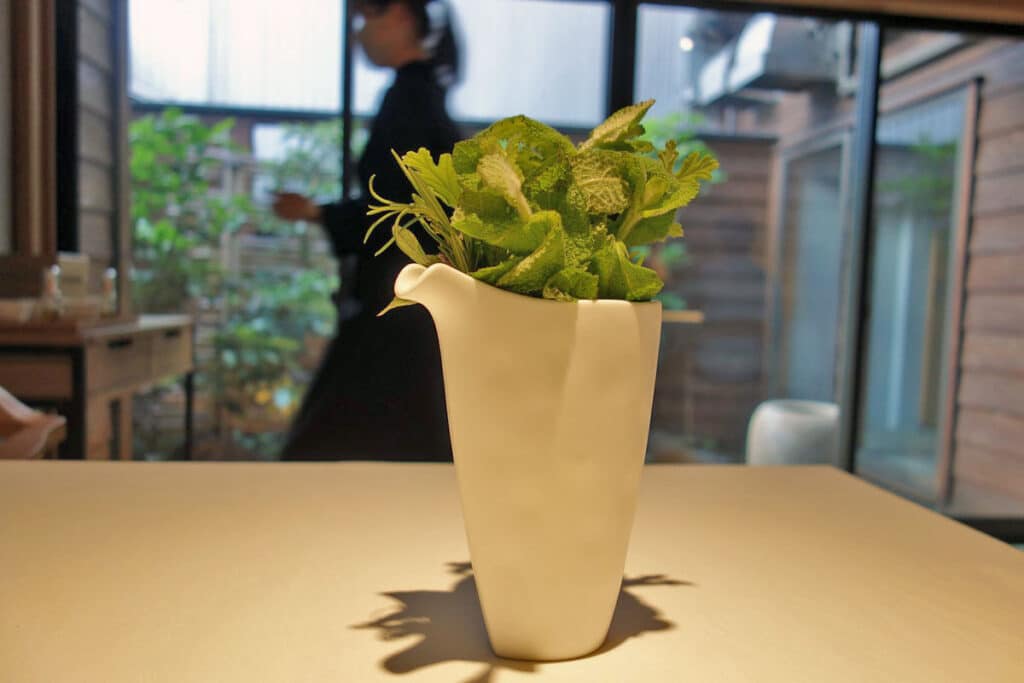
I thought it was something like an object, but it turned out to be gazpacho scented with herbs.
It is poured into the cup from here.
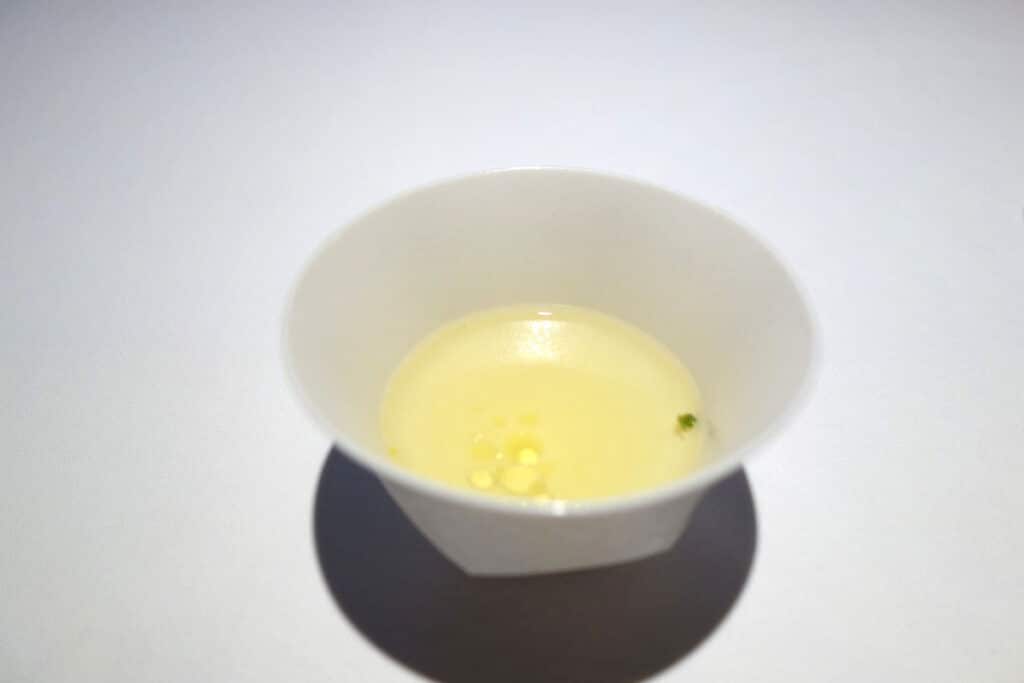
Gazpacho is usually made with mashed summer vegetables, but this one is a curveball, with only tomato essence. The scent of glutamic acid stands.
Finished with pure domestic olive oil from Kagawa Prefecture.
The scent of plenty of herbs is interesting, but it’s also stylish to serve the dishes that come to mind first when you think of Spanish cuisine, without putting them on the menu and serving them as a supporting role.
‘Guisante la grima’ Guisante Lagrima Turkey/Snap Pea

Gisantella grima is a Spanish pea, common in Basque cuisine.
I express it with snap peas.
Served with Noto turkey thigh and burrata.
Bread
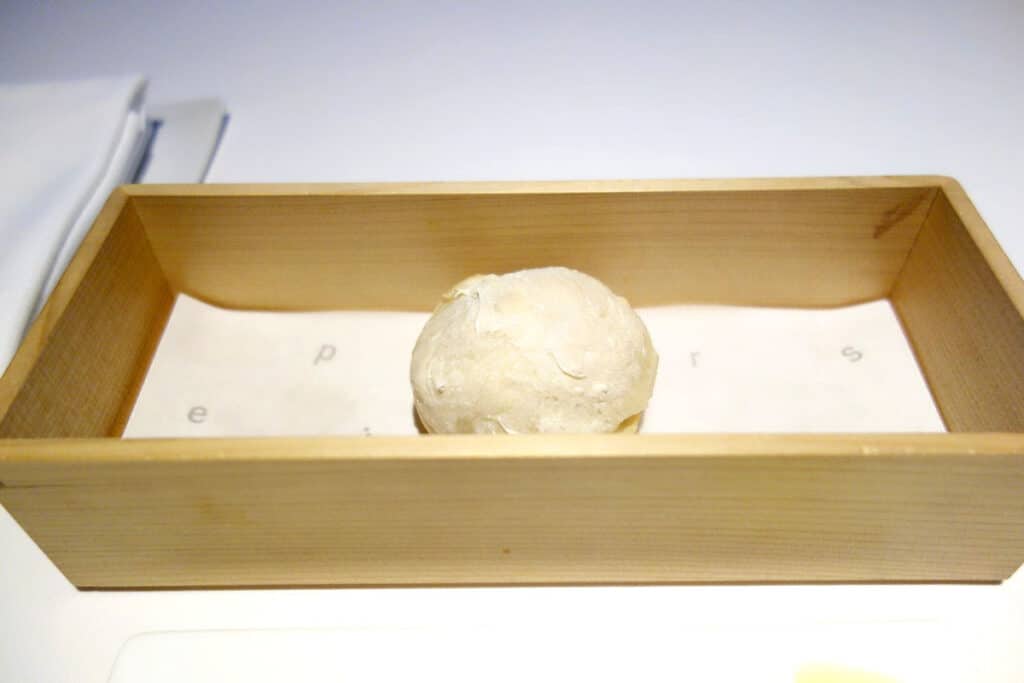
Bread baked with only Komatsu udon flour, Notojima salt, and water.
It is said that the trick is to put in little yeast and put in a lot of water and start with steam.
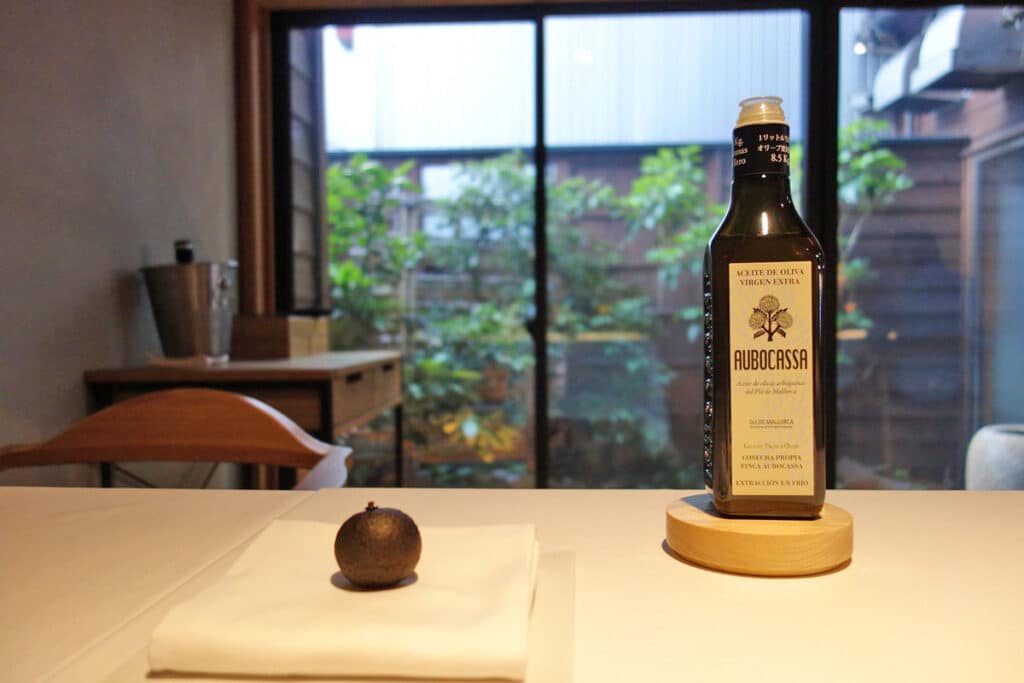
By the way, I thought that something had been prepared again, and when I was looking at it, it was the seasoning for the next dish.
‘Pil-Pil’ Pil Pil Mahata / Cauliflower
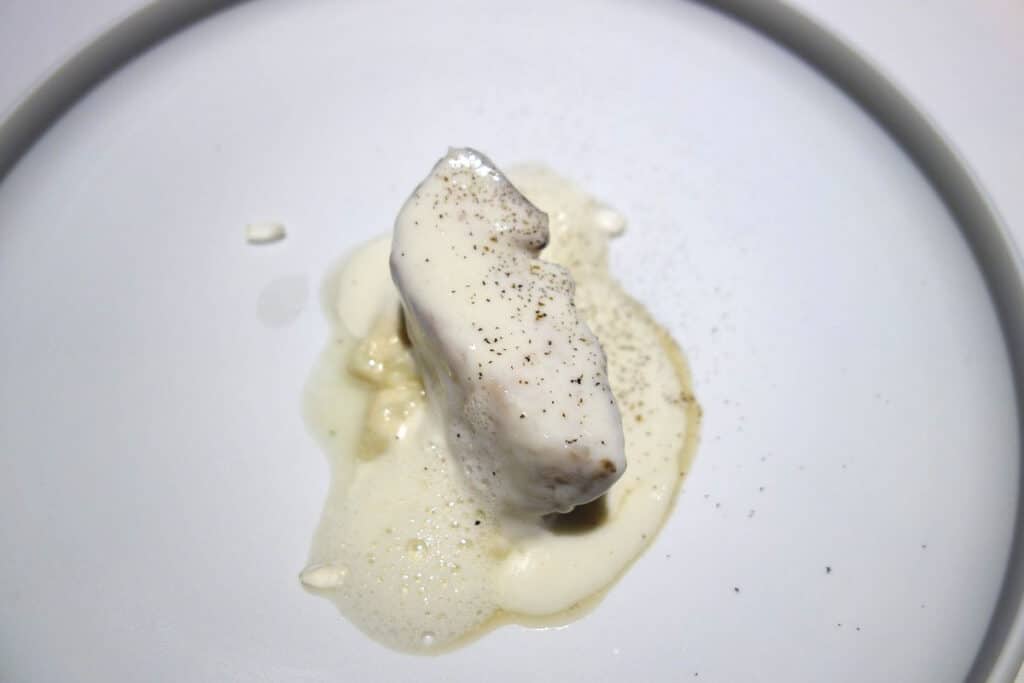
Mahata aged for several days.
With pil pil sauce using cauliflower.
Scrape off the skin of the carbonized yuzu citrus to add fragrance.
‘Ensalada de esparrago’ Asparagus/plum shellfish

Put plum shellfish and kiwi on asparagus and suzutake.
With “Ajo Blanco” sauce made from garlic.
‘Pan con tomate’ fermented tomato
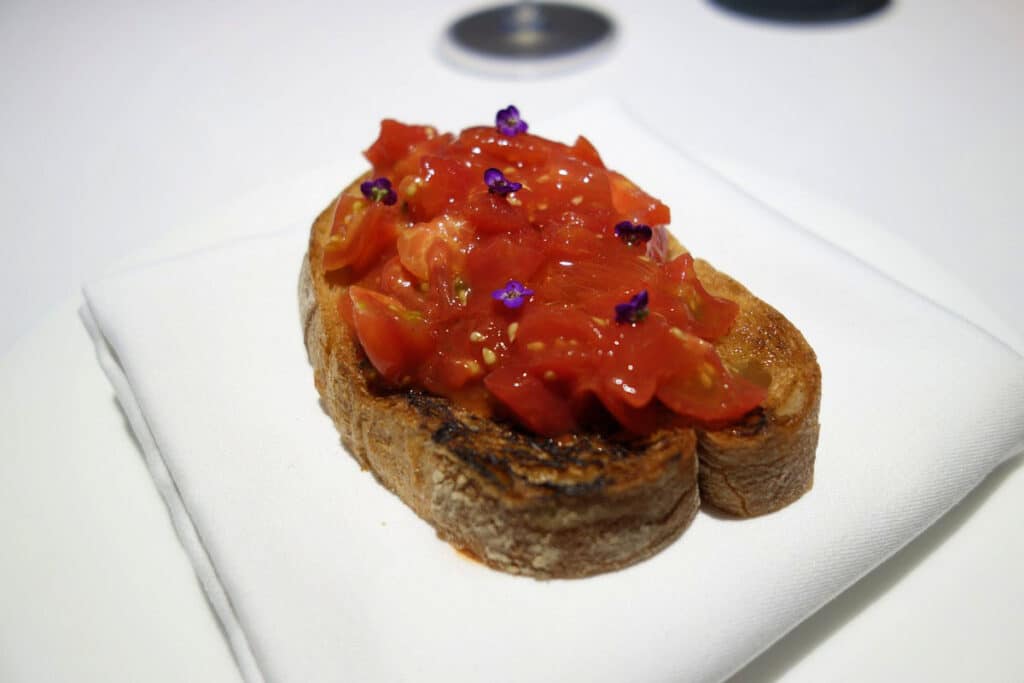
Coming from a personal memory from Mallorca, when it comes to Spanish food, this pan con tomate.
So, even if it’s a contemporary Spanish with an innovative touch, when it comes out, oh, come on! and get excited.
The way the tomatoes are fermented is unique to this restaurant.
‘Pescado’ Spanish mackerel
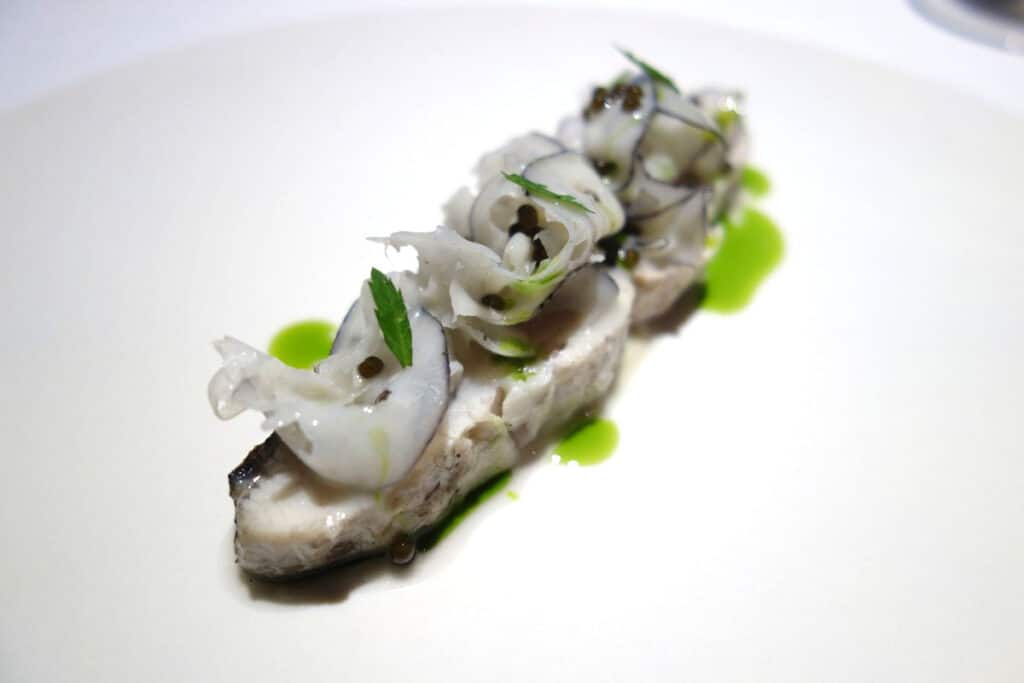
White fish is common in Spanish cuisine, but this season it was mackerel.
2 weeks aging.
Topped with thinly sliced Kaga lotus root and caviar, served with a sauce made from fish broth.
‘Ciervo con verduras de temporada’ Japanese deer
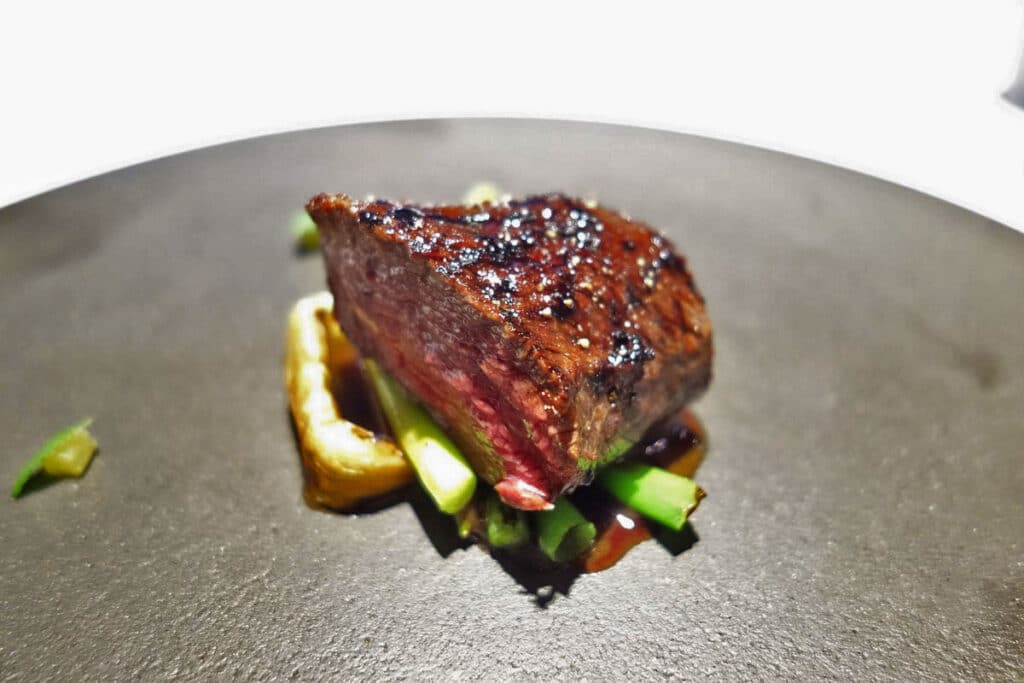
The main meat is Japanese deer back loin.
‘Paella’ Nodoguro
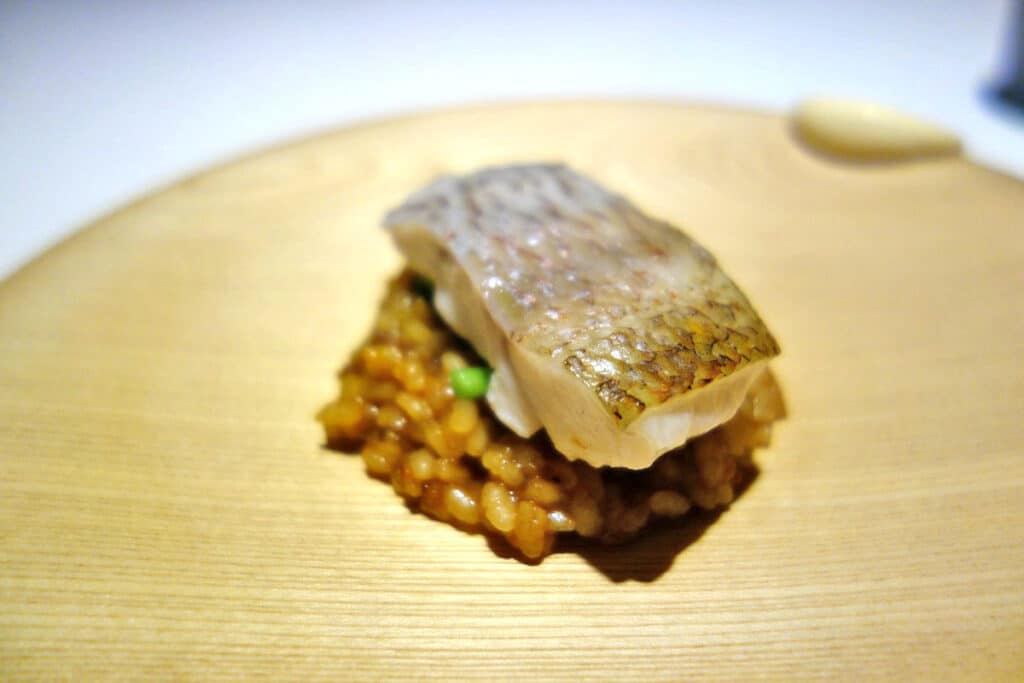
First of all, he showed me in the state of the iron plate.
Well, paella is nodoguro, I see.
In “Aca”, etc., when I remember eating Kobako crab paella, a pile of paella comes out.
The nodoguro, which has survived the fat, is tightened with the scent of ario sauce and trefoil.
I was asked, “Do you want to eat yet?”
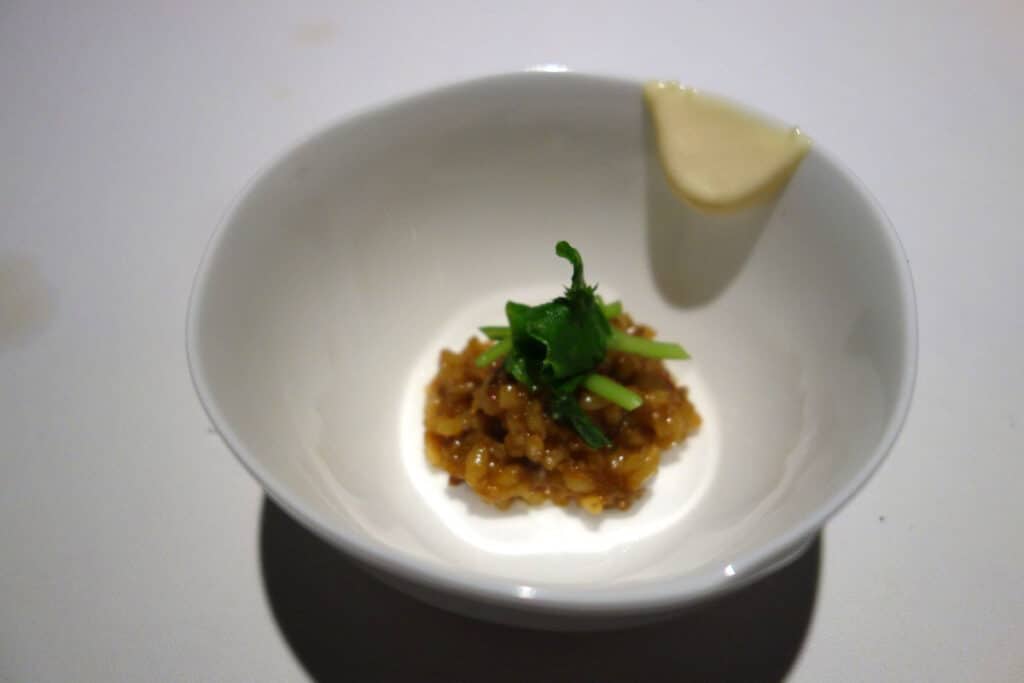
I was asked again, “Do you still want to come in?”
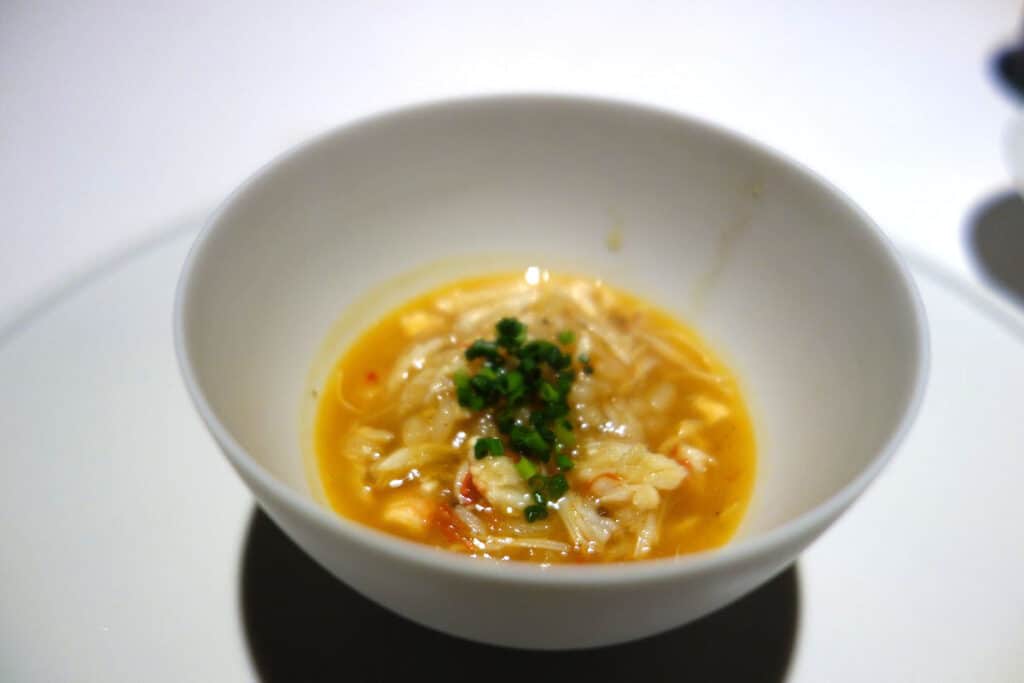
Well, it’s a little embarrassing to read my mind when I say that it’s crab porridge, but it’s so delicious that it’s as good as paella.
The Spanish name for this dish is arrozcarroso.
Dessert
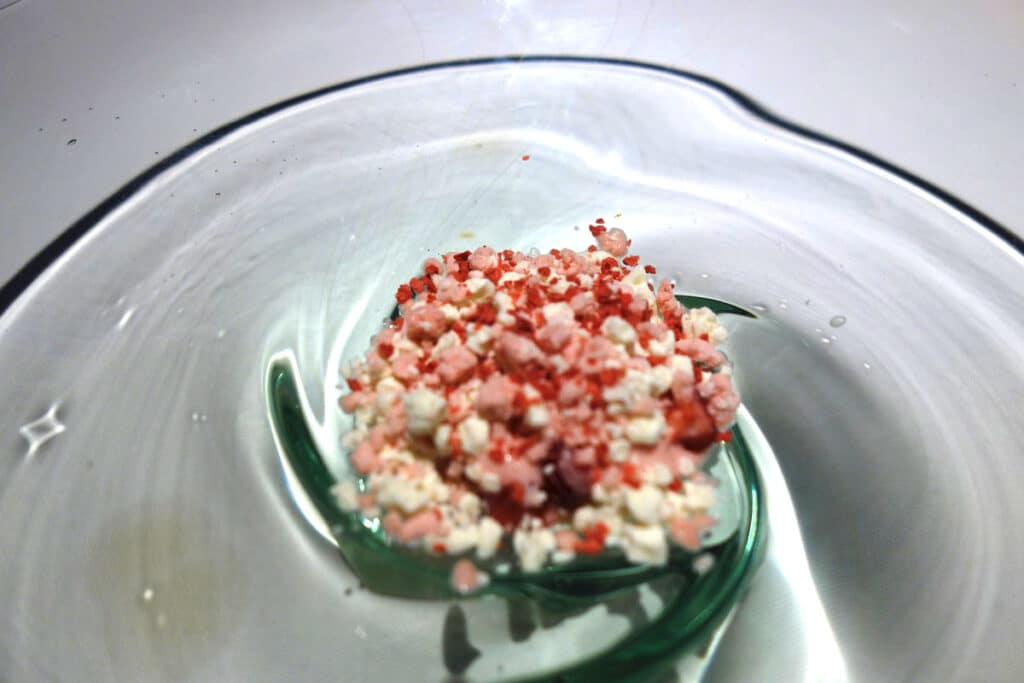
Strawberry is Noto’s ‘Hikarikko’.
Natural butterbur sprouts from Uchiura in Noto are used for ice cream and vanilla yogurt mousse.
‘Tarta citrica’ Dekopon
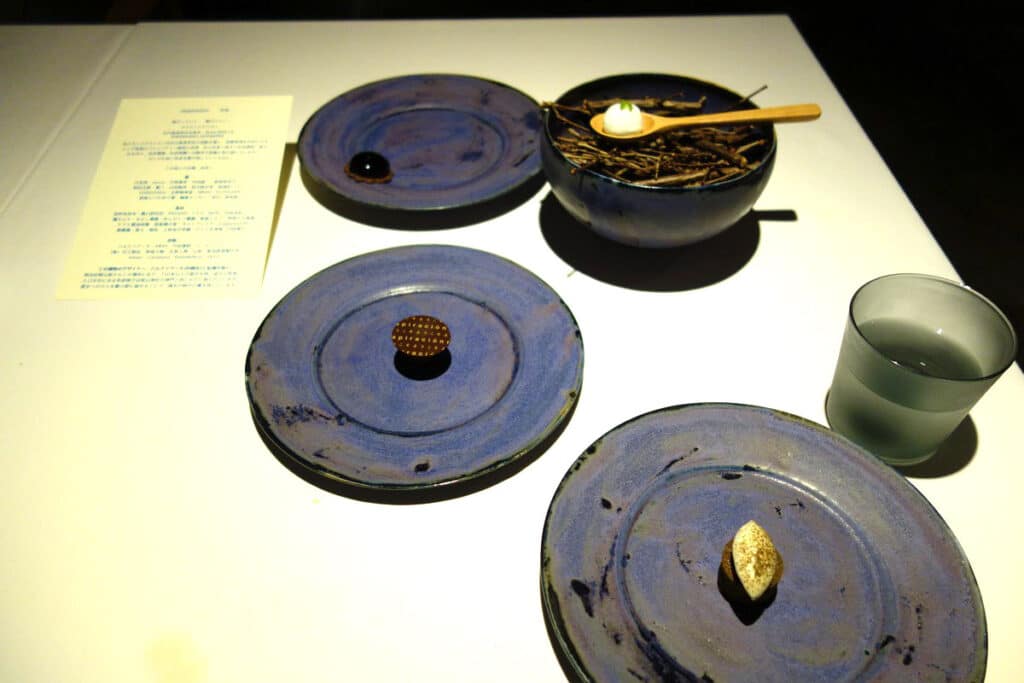
A series of small sweets to conclude a long night.
Menu
【Lunch】
“Course No.1” 11 dishes 13,200 JPY
“Course No.2” 13 dishes 17,600 JPY
【Dinner】
“Course No.2” 13品 dishes 17,600 JPY
*Menus and prices are for reference only. Please note that this may change depending on the season and availability of ingredients.
How to Reserve
By phone or web. Online instant reservations are accepted at Pocket Concierge $ Table Check.
Book via Pocket-Concierge Book via Table Check
Map & Access
1 minute walk from Omicho Market
Shop Info: “Respiracion“
Business Hours: Lunch start all at once 12:00-, Dinner 18:00- / 19:00-
Holiday: IMon
Telephone: 076-225-8681
Address: 67 bakuro-machi, Kanazawa-shi, Ishikawa, 920-0903
Official web
List of Michelin starred restaurants in Ishikawa Prefecture▽
List of Michelin green starred restaurants in Ishikawa Prefecture▽
